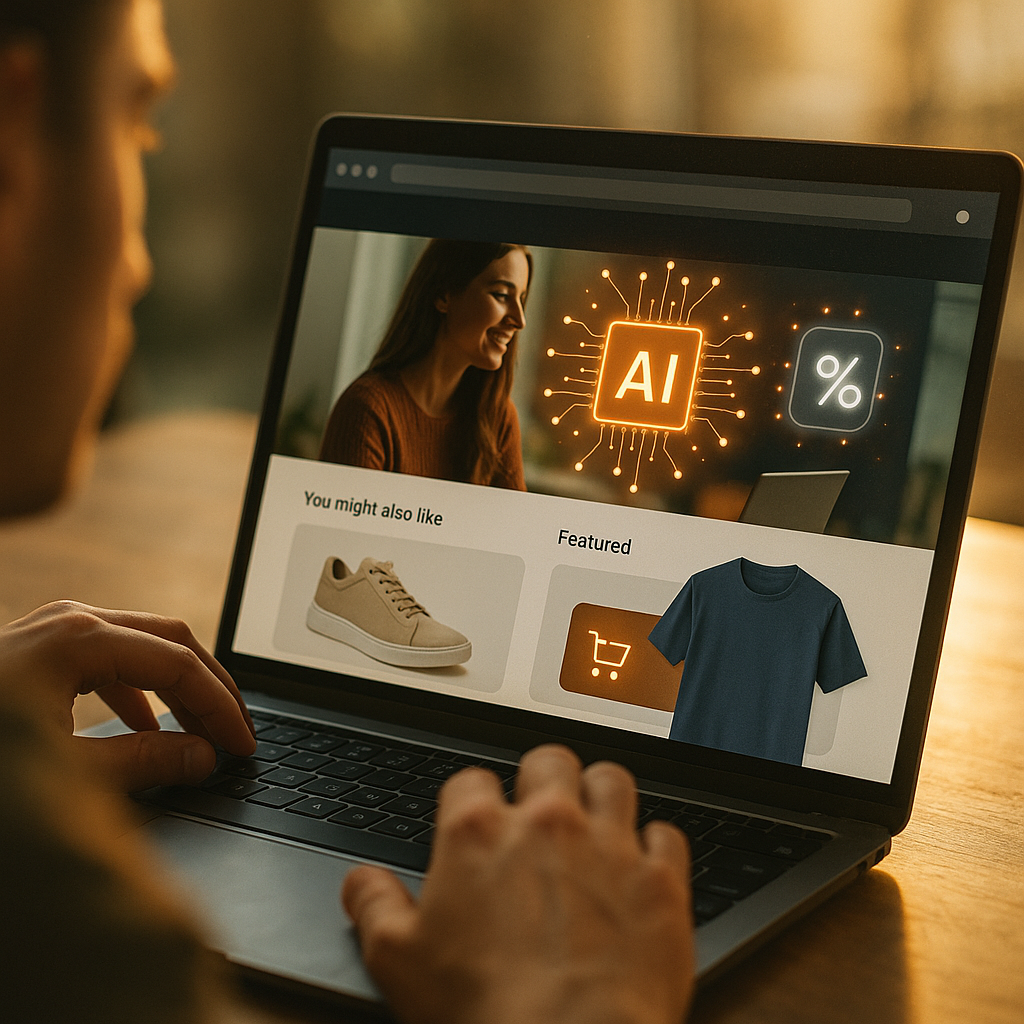Using AI to personalize your website content based on referral source ensures every visitor sees the most relevant information. This strategy increases engagement, improves conversion rates, and strengthens your brand’s digital experience. In 2025, AI-driven personalization is no longer optional—it’s the benchmark for effective online marketing. Ready to uncover how AI can revolutionize your website’s personalization?
Understanding Referral Source Based Content Personalization
Referral source-based content personalization uses AI to tailor the website experience according to where visitors come from. Examples of referral sources include search engines, social media platforms, email campaigns, or partner websites. By analyzing the origin of each visit, AI-powered tools can instantly adjust displayed content—such as headlines, CTAs, and product recommendations—to match the user’s intent and expectations.
Research published in early 2025 by Content Marketing Institute confirms businesses that invest in personalized content see, on average, a 34% boost in user engagement compared to those with static websites. This approach leverages key engagement data, helping sites respond dynamically to diverse user journeys and intent.
The Role of Artificial Intelligence in Website Personalization
Artificial intelligence has become the cornerstone of modern website personalization. Unlike traditional rule-based systems, AI algorithms employ machine learning and natural language processing to analyze vast referral data, segment audiences, and predict user behavior in real-time. This allows your website to:
- Serve custom blog recommendations for visitors from organic search
- Highlight exclusive offers to users arriving through influencer partnerships
- Display localized content for visitors from international social media platforms
AI enables ongoing optimization, continuously learning from user responses to refine which variations of copy, design, or product listings drive the highest conversion rates.
Best Practices and Technologies for Referral Source Personalization
To maximize the benefits of referral source-based website personalization, it’s essential to apply proven best practices and utilize advanced technologies:
- Start With Comprehensive Data Collection: Use analytics platforms that capture UTM parameters, referral URLs, and on-site behavior.
- Employ Real-Time AI Engines: Integrate solutions like Adobe Target AI or Google’s AI personalization APIs to make instant content adjustments.
- Maintain Privacy and Transparency: Provide clear disclosures about personalization and respect user privacy preferences, in accordance with the latest data protection regulations of 2025.
- Test and Iterate Continuously: Run A/B or multivariate tests on personalized elements and use AI to analyze results, allowing for rapid optimization.
- Integrate With Marketing Automation: Sync your personalization platform with email, CRM, and remarketing tools for a seamless user journey.
Choosing the right personalization toolset is crucial. Evaluate your options based on scalability, integration ease, and support for real-time processing.
EEAT: Building Trust With Personalized Website Content
EEAT—Experience, Expertise, Authoritativeness, and Trustworthiness—remains Google’s gold standard for ranking high-quality content in 2025. Personalized content, shaped by AI and tailored to referral sources, should exemplify EEAT by:
- Showcasing Expertise: Deliver content specific to known interests of users from specialized forums or industry newsletters.
- Demonstrating Authority: Feature quality assurance badges or client testimonials for visitors from B2B referral sites.
- Ensuring Trust: Display privacy notices and transparency policies dynamically, especially for first-time visitors from social media links.
Approaching personalization with a user-first mindset builds credibility and sustains visitor loyalty, giving your site a significant advantage in competitive verticals.
Common Challenges and How to Overcome Them
While AI-driven referral source personalization can yield impressive results, several challenges may arise:
- Incomplete Referral Data: Combat missing or ambiguous data by supplementing with behavioral analytics and session history.
- Over-Personalization: Avoid overwhelming users by limiting personalized changes to three to four key elements per page.
- Data Privacy Regulations: Stay abreast of evolving global privacy laws. Use AI-driven consent management platforms to honor user choices.
- Technical Integration: Work closely with web developers and IT teams to ensure seamless AI tool integration, prioritizing fast load times and mobile responsiveness.
Solving these challenges ensures your AI-powered personalization remains ethical, effective, and user-centric.
Measuring Success: Analyzing the Impact of AI Personalization
To prove the ROI of AI-driven referral source personalization, it’s essential to monitor the right KPIs. These should include:
- Engagement Metrics: Track bounce rate, time on site, and pages per session by referral segment.
- Conversion Rate: Measure goal completions or purchases by original referral source and personalized variations.
- Customer Lifetime Value: Analyze if personalized content for specific sources leads to longer, more valuable relationships.
- User Feedback: Collect direct input through post-session surveys or satisfaction widgets.
Using these insights, AI platforms can further refine your personalization strategy for ongoing impact and improved business outcomes.
In summary, using AI to personalize your website content based on referral source is a powerful way to deepen engagement, increase conversions, and deliver value in 2025’s competitive digital marketplace. Start leveraging AI-driven personalization—and ensure every visit counts.
FAQs About Using AI to Personalize Your Website Content Based on Referral Source
-
How does AI identify referral sources?
AI analyzes incoming traffic data such as UTM parameters, HTTP referrers, and device information. It then segments users by origin—search engines, social media, email, or partner sites—to personalize content accordingly.
-
Can personalization impact website load speed?
When implemented with modern AI tools, personalization has minimal impact on load time. Using edge computing and asynchronous scripts helps ensure speedy experiences even with dynamic content.
-
Is AI-driven personalization compatible with all CMS platforms?
Most major CMS platforms in 2025, like WordPress, Shopify, and headless solutions, support integration with AI personalization engines through APIs or plugins.
-
What data privacy practices are important for personalized sites?
It’s crucial to openly disclose data usage, obtain clear consent, and comply with regional privacy regulations. Leverage AI-powered consent management for segment-based compliance.
-
How soon can I expect results after implementing AI-based personalization?
Most websites observe measurable uplifts in engagement and conversion within two to four weeks of launching AI-driven referral source personalization, though ongoing optimization continues to enhance results.
